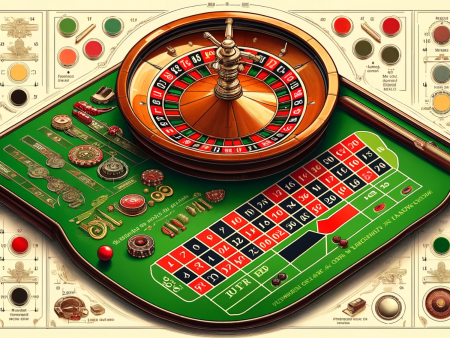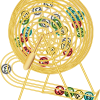he distinctions involving gambling and gaming are often not obvious. There may be no change at all in certain circumstances, while in others, the disparities are clear and tangible.
The Difference Between Gambling and Gaming
The distinctions involving gambling and gaming are often not obvious. There may be no change at all in certain circumstances, while in others, the disparities are clear and tangible. While the phrases “gambling” and “gaming” can be used interchangeably in some situations, the two subjects can be easily distinguished in others. Both expressions are interchangeable when discussing the act of gambling and can be used in a variety of situations. Rather than the terms themselves, the context should be used as a guide.
How the World Defines Gambling and Gaming
Experts in the field of gambling, academics, and even zealots have discussed the semantics of the two phrases, with many coming to different conclusions. One issue that makes the distinction more difficult is the “gamification” of gambling games in both online and traditional casinos.Gamification, in a nutshell, is the incorporation of gaming aspects into a gambling environment, but not necessarily into the games directly.
The impact of media is another element contributing to the crossover in perceptions of the terms’ meanings. These involve not only the typically respectable media, but also opinion-makers and public intellectuals on both sides of the discussion over the virtues or dangers included in gambling in any form.
In fact, the term “gaming” is commonly used to refer to taxed and regulated betting activities, whereas “gambling” is commonly used to refer to gray area or even illegal betting activities. Despite the fact that cultural standards may demand labels such as “gambling” in the United Kingdom and “gaming” in Macau, gaming and gambling can be distinguished from one another depending on the discussion’s purpose.
According to the National Institute of Health in the United States, there is significant overlap between the two phrases when discussing the potential for either or both activities to affect one’s well-being. Advertising characteristics, content context and centrality, engagement, monetization, betting and wagering, results types, and even structural faithfulness are all instances.
Although the issue is as impartial as possible in that sense, both terms are viewed through the prism of addiction or behavioral behaviors that have an impact on general health. Consequently, an entire discipline of behavioral research has been dedicated to helping problem gamblers correct abnormal habits and modify erroneous gambling views.
For a more thorough differentiation, delving into both the bigger picture and detailed explanation is key. Even if people do so, there’s always uncertainty—coming to a clear conclusion can prove to be impossible since both gambling and gaming have become exchangeable terms. However, there’s always a means of determining the classification by how people react to the terms and make judgments based on their use of the terms.
The Argument Against Phrases Being Interchangeable
Gambling can be defined by outcomes that are dictated partly by chance, and this is a reasonable argument. Getting into the long-running and contentious discussion of whether poker or sports betting outcomes are primarily skill-based or chance-based is unnecessary, and so is going into the thorny maze of fantasy sports with a preconceived notion.
However, all of these so-called skill-based betting activities show that there are no safeguards in place to prohibit a person from relying solely on chance to anticipate and potentially profit from a contest’s outcome. Each and every poker game can be influenced by a random bluff, and the outcome of any live or future sporting or eSports event can be determined by the volatility of a bet rather than a calculated winner.
Participatory skill-based play with components of advancement and rewards for achievement, on the other hand, is the ideal definition of “gaming.” However, even this definition isn’t complete, because neither gaming nor gambling activities exist in their purest form, except as outliers rather than standard-bearers in their respective categories.
In conclusion, the lines of separation get muddy in reality, and gaming and gambling frequently overlap. While gaming can exist without gambling, and gambling can exist without totally skill-based gaming, the two labels have become interchangeable in the popular mind.











